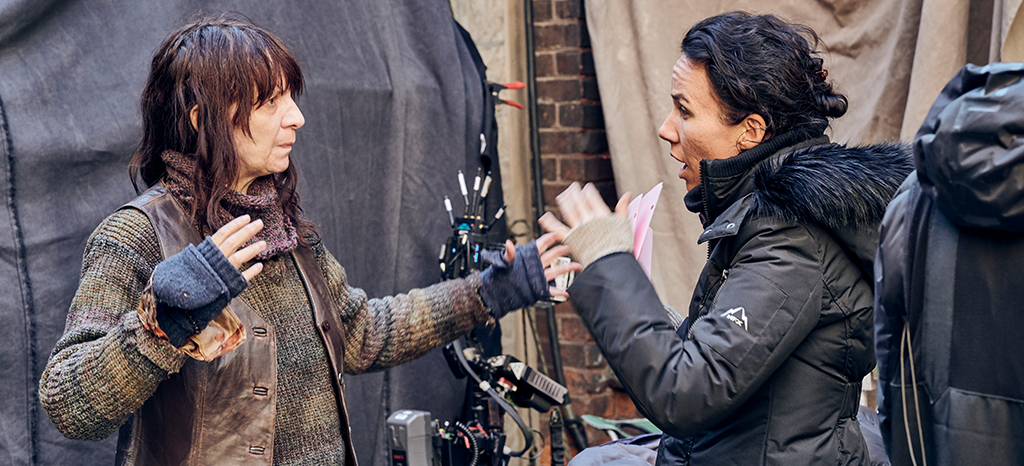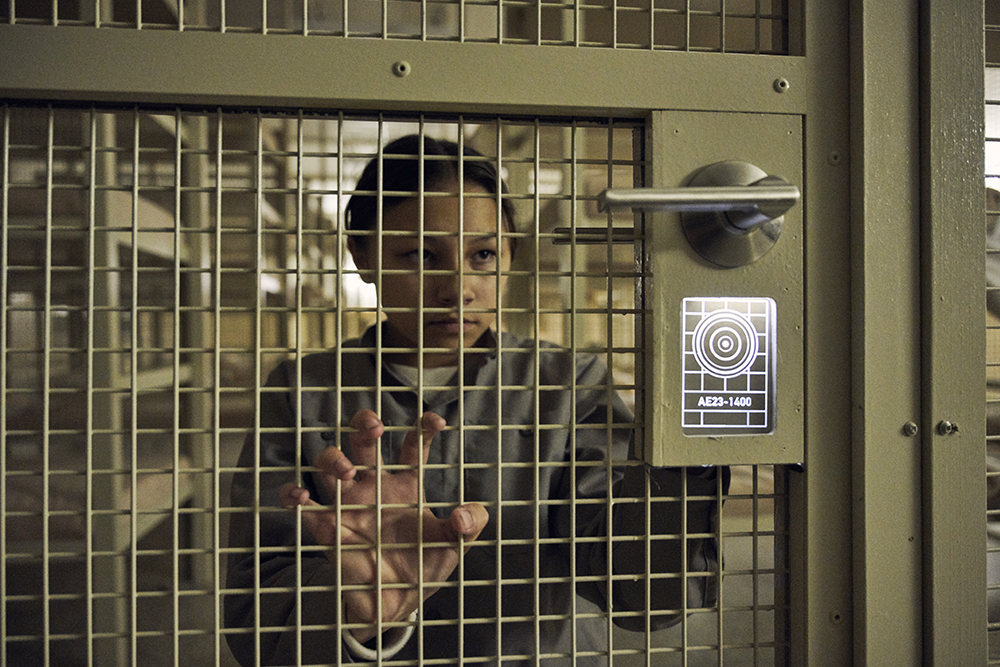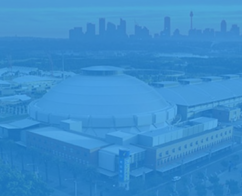
No Guest Found in this category
This article contains discussion of the Stolen Generations and Canada’s Indigenous child removal policy, which may be distressing to some readers. If you require assistance, please contact Lifeline on 13 11 14 or Beyond Blue on 1300 22 4636. To speak with a First Nations crisis supporter, call 13YARN (13 92 76).
“I really did set out to make a matriarchal movie,” tells writer/director Danis Goulet of Canadian/New Zealand-produced Indigenous sci-fi dystopian film, Night Raiders.
The Saskatchewan-born director/writer adds, “I think that, especially in activist movements, women play such an important role. And yet I don’t think that story gets told enough, like how strong our women are, but also how their leadership expresses themselves in a unique way.”
Set in a dystopian world, Night Raiders takes place in 2043 in post-Civil War North America where children are property of the state. The film follows a Cree woman named Niska (Elle-Máijá Tailfeathers) and her daughter, Waseese (Brooklyn Letexier-Hart). They’re on the run to prevent Waseese from being taken by law to the state’s children’s academy. Eventually, Niska loses Waseese and joins an underground band of Indigenous vigilantes to get her daughter back before she loses her to the academy’s assimilation method.

Brooklyn Letexier-Hart as Waseese in ‘Night Raiders’
“I had made a short called Wakening, which was my first foray into genre filmmaking,” Goulet explains; seeing Indigenous people’s resilience inspired the Cree/Métis creator to write Night Raiders, beginning in 2013.
“There was this activist movement that was happening at the time called Idle No More, and it was up here in Canada, and it was a movement that swept all across the country, and it was Indigenous people doing round dances,” she recounts, “which is like a circular dance in malls at the height of the Christmas shopping season. And it was a protest about the removal of protections of Canadian lakes and rivers.
“It kind of started on the prairies where I’m from, and then it ended up sweeping all across Canada. And I remember just being so glued to the live feeds and seeing people standing up in this beautiful way, being seen and heard in this beautiful way.”
Through the film’s journey, you connect and view the message of the harmful impact these policies have had on the Indigenous communities over generations. Colonialism, the Indian Act, and the reserve system to residential schools were actual events that brought painful repercussions to the Indigenous community that still affects today.
“The residential schools were a child removal policy in Canada that was in place for seven generations of Indigenous families,” Goulet says.

Danis Goulet directs Elle-Máijá Tailfeathers as Niska and Alex Tarrant as Leo on the set of ‘Night Raiders’
“And the effect of it has been absolutely profound. And even in the year that Night Raiders got released up here, which was last year, there was a process where Indigenous communities were starting the process of uncovering mass graves of children all across the country.”
Despite being a low-budget production, Night Raiders allowed her to showcase all these policies placed on the Indigenous community over the years.
“When you put all of that together in an imaginary context, it actually allows you to hit reality.”
Being an Indigenous film creator, Goulet has been in the industry since the early 2000s, witnessing the invisibility and lack of opportunities for Indigenous stories being told by Indigenous creators.
“I was a part of a film festival up here called imagineNATIVE, which is an Indigenous film festival, and through that, it opened my eyes up to a global Indigenous film community, including many Australian filmmakers that were around in those early years at that time, like Warwick Thornton, Beck Cole, Ivan Sen and Rachel Perkins.”
Witnessing Indigenous filmmakers’ support in Australia with their own screen office inspired Goulet and other Indigenous creators in North America to advocate for something similar in North America, using Australia as an example.
“We finally got our own screen office about four years ago,” she says, “I feel like we’re in a different place now. Our major film funder here has targeted funds towards Indigenous feature film production. Then the establishment of the screen office has made a world of difference as they advocate on behalf of all of us in our screen community.”

Elle-Máijá Tailfeathers as Niska in ‘Night Raiders’
What does Goulet hope Australian audiences will take away after watching Night Raiders?
“First off, enjoy the film, and go on the emotional journey with the characters who I spent so many years writing, and I just love all of them and their journeys,” she says, “I hope the film moves them because the film is centred entirely mostly on Indigenous people. I hope it creates an understanding and empathy for the impact of what it does and did do to Indigenous families to have their children taken away.”
The juxtaposition of the story will resonate as a reminder of the violent assimilation in colonised countries like Australia, “I think that, you know, all colonised countries have to contend with what they did to Indigenous people, and Australia is no different, and there are stolen generations in Australia. And so, I hope that impact is also seen through an Australian lens and how it’s relevant to the context down there.”
Night Raiders has garnered much success since its release in Canada last year, including being listed in TIFF’s Top List for 2021. Goulet has been booked and busy since then. She just finished directing Netflix thriller Ivy, starring Alice Braga (Queen of the South), and is thinking of a new feature. Despite her busy schedule, Goulet got the opportunity to direct an episode for the new season of Reservation Dogs.
“It was just a dream to work on it. It was such a great experience going down to Oklahoma and supporting Sterlin Harjo’s vision for the show. And I just loved every minute.”
Night Raiders is out now in selected cinemas








